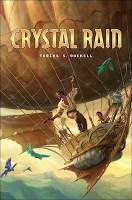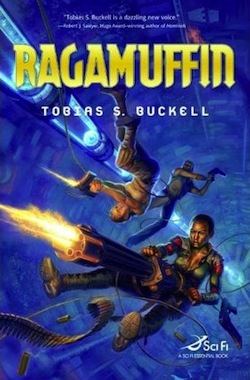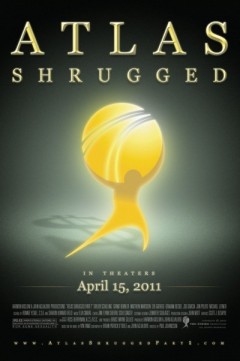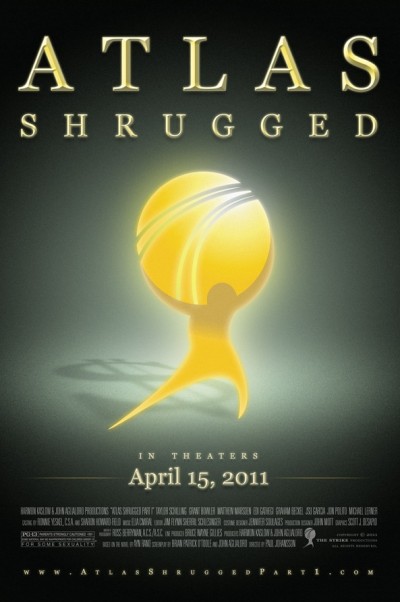
As you may have heard, the Department of Justice is looking into opening an antitrust case against the Big 6 publishers and Apple for allegedly colluding to set prices via an agency model which the publishers set the prices for their books in the iBooks store, not Apple. They were then able to put enough pressure on Amazon to coerce it into accepting the agency model as well, which it had previously resisted. This is why you see ebooks being sold on Amazon for $9.99 or more nowadays.
Now, there’s a contingent of publishers and authors who fear change and have grown complacent and dependent on their IP-based, physical distribution model; they tend to see Amazon as an evil corporation out to destroy publishing, bookselling, and writers.
Scott Turow, president of the Authors Guild — does anyone else find the idea of an authors guild disturbing, like modern-day feudalism? some would say the same about the Big 6 publishing houses — recently wrote an open letter speaking out against the antitrust investigation and in defense of the agency model. Quelle surprise! Though it’s ironic to see someone defending big corporations against antitrust investigations who, under normal circumstances (i.e., ones in which his bottom line isn’t directly affected), would probably be in favor of antitrust suits against monopolistic big corporations.
Anyway, Turow types some rather outrageous falsehoods about Amazon. Indie powerhouses Barry Eisler and Joe Konrath1 do a pretty god job of showing how ridiculous Turow’s claims are. Richard Lea summed it up on Twitter with question that makes up the first half of this blogpost title: “Can a bookseller destroy bookselling by selling lots of books?”
I do disagree with Eisler and Konrath on one thing, however, and that is their opposition to the collusion between Apple and the Big 6 publishers. As a libertarian, I don’t have a problem legally speaking with collusion, or price fixing. Without government support, cartels are unsustainable. Of course, believing some practice shouldn’t be illegal doesn’t mean I approve of said practice.
[continue reading…]
Help Promote Prometheus Unbound by Sharing this Post

 As I mentioned in my review of Crystal Rain, I enjoyed reading Tobias Buckell’s debut novel, but I enjoyed reading the sequel, Ragamuffin (Tor, 2008), even more. This may be because Buckell has grown as a writer or it may be because Ragamuffin is more a traditional galaxy-spanning space opera, one of my favorite subgenres. But another reason is that there are more prominent libertarian themes in Ragamuffin than there were in Crystal Rain, enough that it was a finalist for the 2008 Prometheus Award.
As I mentioned in my review of Crystal Rain, I enjoyed reading Tobias Buckell’s debut novel, but I enjoyed reading the sequel, Ragamuffin (Tor, 2008), even more. This may be because Buckell has grown as a writer or it may be because Ragamuffin is more a traditional galaxy-spanning space opera, one of my favorite subgenres. But another reason is that there are more prominent libertarian themes in Ragamuffin than there were in Crystal Rain, enough that it was a finalist for the 2008 Prometheus Award.
Where Crystal Rain was set on a lost colony planet mostly devoid of advanced technology, Ragamuffin opens on an advanced planet ruled by an alien race called the Gahe, who are themselves a client race under the rule of the secretive Satraps. Human beings are officially “free” in the “benevolent” Satrapy, but in fact are forced to live on the margins of society — on space stations in the middle of nowhere, on interdicted planets cut off from the rest of the galaxy by collapsed wormholes (including Earth itself), or on reservations. On the Gahe planet, Astragalai, humans who don’t want to serve in the role of intelligent pet for a Gahe master must live on a reservation, which they can only leave when granted a temperary “human safety” pass. Woe to the human who does not return to his reservation before his temporary pass expires: the penalty is death or enslavement.
We are first introduced to the protagonist of the novel, Nashara, on one such reservation called Pitt’s Cross. Fans of Pepper and John from Crystal Rain will be increasingly disappointed not to see them at the outset, so I think it is best to go into this novel with the foreknowledge that characters from Crystal Rain do not make an appearance until about halfway through. Still, Nashara does quickly grow on you and you will get to see Pepper open a big ol’ can o’ whoop ass eventually, so hang in there. And if it’s Pepper-style whoop ass you’re after, Nashara will not disappoint.
So, anyway, Nashara escapes Pitt’s Cross and rides on an orbital skyhook and transport pod up to a space station to meet up with a group, the revolutionary League of Human Affairs, for whom she had just completed a dangerous job. The League wants to overthrow the Satrapy and achieve real freedom for humanity. But Nashara’s loyalties lie elsewhere and she has a greater mission to accomplish. Things don’t go as planned, but Nashara manages to hitch a ride on a spaceship and proceeds to be hunted in a race across the galaxy by agents of the Satrapy.
[continue reading…]
Help Promote Prometheus Unbound by Sharing this Post

 In Ayn Rand’s novel Atlas Shrugged, the first time we meet Dagny Taggart is on the Taggart Comet. The scene comes alive as Rand’s pen reveals the details such that the reader feels as if he is there. When Dagny awakens from a nap to discover the train has stopped, she gets off to investigate. Ayn Rand writes:
In Ayn Rand’s novel Atlas Shrugged, the first time we meet Dagny Taggart is on the Taggart Comet. The scene comes alive as Rand’s pen reveals the details such that the reader feels as if he is there. When Dagny awakens from a nap to discover the train has stopped, she gets off to investigate. Ayn Rand writes:
There was a cold wind outside, and an empty stretch of land under an empty sky. She heard weeds rustling in the darkness. Far ahead, she saw figures of men standing by the engine—and above them, hanging detached in the sky, the red light of a signal.
I have often thought Rand would have made an excellent director, and in that single paragraph we can see some of her talent. She appeals to three senses and evokes compelling images in our heads. A director, location scout, sound engineer, set designer, and cinematographer intent on filming such a scene have half their work done for them already. Let us hear the weeds but not see them; let us see Dagny shiver once and hold her coat tighter to her body; let us see a long shot of silhouettes of men bathed in red light from the stoplight that seems to float in the dark sky above them. The appropriate shots present themselves, practically instructing the director.
Before the stop, Dagny hears a brakeman whistling a tune she just knows was composed by Richard Halley.
“Tell me please what are you whistling?”
…
“It’s the Halley Concerto,” he answered, smiling.
“Which one?”
“The Fifth.”
She let a moment pass before she said slowly and very carefully, “Richard Halley wrote only four concertos.”
The boy’s smile vanished… “Yes, of course,” he said. “I’m wrong. I made a mistake.”
This early scene, which I find excellent and a great mood setter for the rest of the book, is absent from the movie. So too is any trace of the talent for storytelling present in it.
[continue reading…]
Help Promote Prometheus Unbound by Sharing this Post













